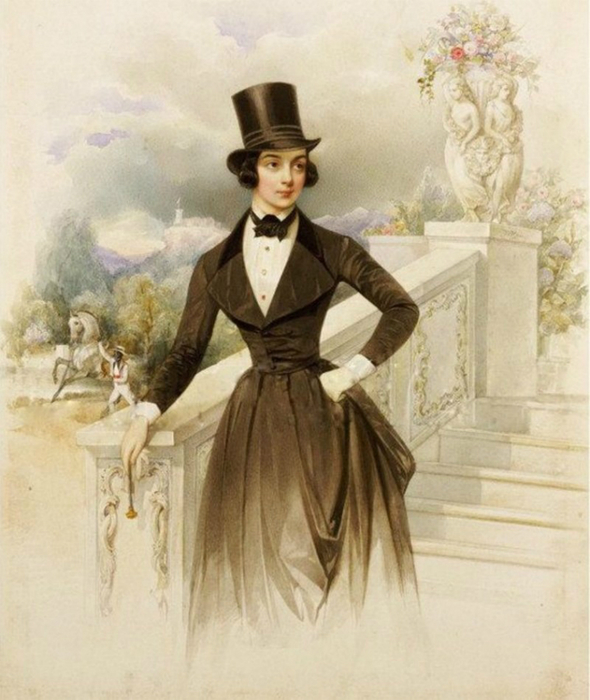|
Михаил Лермонтов
К ПОРТРЕТУ
Как мальчик кудрявый, резва,
Нарядна, как бабочка летом.
Значенья пустого слова
В устах ее полны приветом.
Ей нравиться долго нельзя:
Как цепь ей несносна привычка,
Она ускользнет, как змея,
Порхнет и умчится, как птичка.
Таит молодое чело
По воле - и радость и горе.
В глазах - как на небе светло,
В душе ее темно, как в море!
То истиной дышит в ней всё,
То всё в ней притворно и ложно!
Понять невозможно ее,
Зато не любить невозможно.
<1840>
|
|
By Mikhaïl Lermontov
TO A PORTRAIT
A tomboy, she`s curly and brisk,
A bright butterfly as in summer.
The meaningless words from her lips
Are full of a genuine glamour.
You can be her king for a day,
She can"t bear the shackles of habits.
She"ll slip out at once as a snake,
Take wing and be off as a parrot.
The innocent brow of hers
Conceals now joy now sorrow.
Her eyes are the bright sky `bove earth,
Her soul"s dark like the sea water!
Now all in her breathes the truth,
Now she"s a deceitful pretender!
You can"t understand her in sooth,
She can"t help being high in your favour.
<1840>
|





